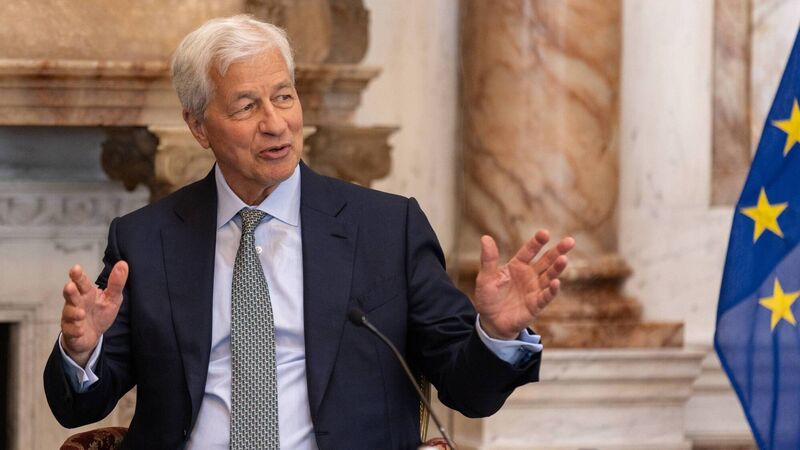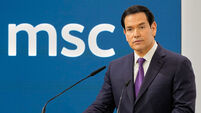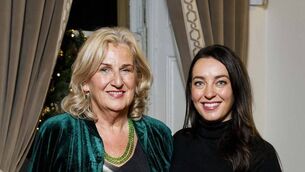JP Morgan CEO says EU needs to complete single market to rebuild its competitiveness

JPMorgan Chase & Co chief executive Jamie Dimon speaking at the event in Dublin on Thursday. Picture: Patrick Bolger/Bloomberg
The chief executive of one of the world’s largest banks has said that Europe needs to complete its move towards a complete single market, across numerous sectors, if it is seeking to rebuild its global competitiveness.
Jamie Dimon, the chief executive officer and chairman of JPMorgan Chase — one of the largest banks in the world — was in Dublin on Thursday attending an event hosted by Tánaiste Simon Harris at the Department of Foreign Affairs.















